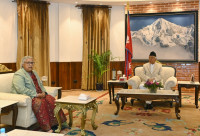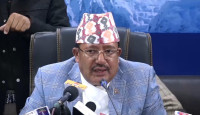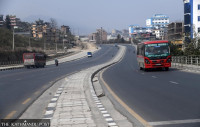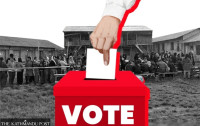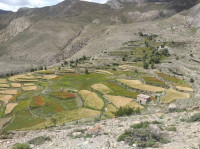National
Dahal has the opportunity to fully implement federalism. But will he?
Previous governments wasted such chances due to their vested interests.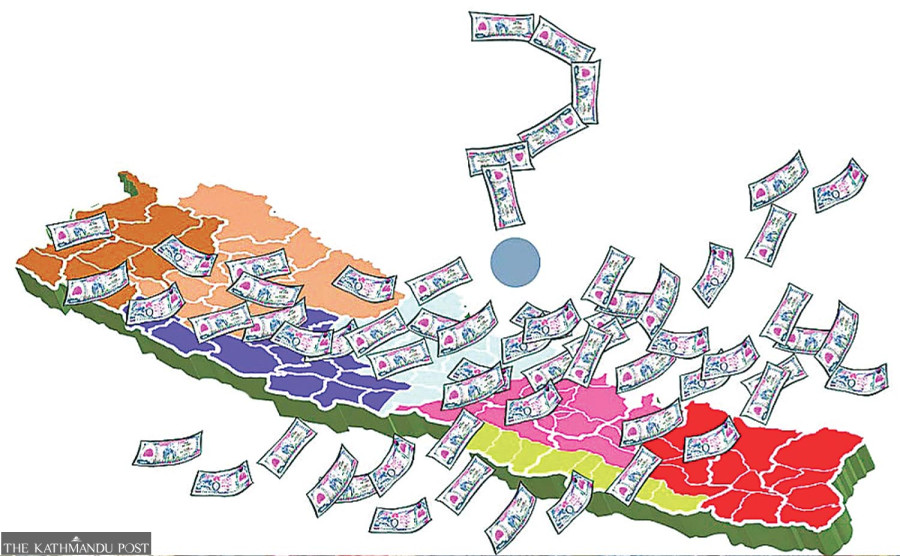
Binod Ghimire
Implementation of the Constitution of Nepal and ensuring stability in the country was the broader mandate of the government formed after the 2017 general elections.
Institutionalisation of federalism, republicanism and secularism—key elements of the constitution—were the major tasks before the KP Sharma Oli government. The centuries-old centralised system was federated and an ordinary Nepali citizen could become the head of state. As republicanism and secularism need no additional legal arrangements in place, dozens of laws and regulations are needed for a full-fledged implementation of federalism.
It’s not true that nothing happened in the three and a half years of the Oli government. However, his government was reluctant to allow the provinces and the local level to fully discharge their constitutional duties. Except for the promulgation of the Acts that were mandated by the constitution, little was done towards endorsing the laws needed to strengthen federalism.
Any law inconsistent with the constitution becomes invalid. One year after the first session of the federal parliament commenced, the statute also made it mandatory to have all the necessary laws, including on the guarantee of 31 fundamental rights, in place within three years of the charter’s promulgation. Though existing laws were amended or Acts promulgated within deadline, the Oli government didn’t show the urgency for passing the Federal Civil Service Act or the Federal Education Act. It also did not take the measures necessary to overhaul Nepal Police.
“Several statements and acts of Oli as prime minister showed that he didn’t wholeheartedly embrace federalism,” Kim Lal Devkota, a member of the National Assembly, who is an expert on federal affairs, told the Post. The Sher Bahadur Deuba government, which succeeded the Oli administration, too didn’t act to that effect.
Deuba’s team, which ruled for a year and a half, also did not work towards the police’s integration, nor did it have the legal instruments in place for making federalism functional. Instead, it came up with the law to keep the security of Kathmandu Valley under its purview. The Bagmati Provincial government objected to the move.
The newly installed Pushpa Kamal Dahal government carries this legacy. Dahal’s party, CPN (Maoist Centre), always tries to project itself as the champion of federalism, which was embraced following the Madhesh uprisings led by Upendra Yadav, who now chairs the Janata Samajbadi Party.
Dahal leads the government of seven parties that carry different ideologies and pole-opposite stances on federalism. Rastriya Swatantra Party (RSP), the third largest party in the ruling coalition, has not made its position on federalism clear. The party didn’t field candidates for the provincial assemblies, and its leaders including the chief, Lamichhane, publicly announced their boycott of the provincial vote. Rastriya Prajatantra Party (RPP), which supports the Dahal government, has been advocating reinstating the monarchy and scrapping the federal system.
“Yes there are some problems,” said Devkota. “However, I have some hope from the Dahal government. The Janata Samajbadi Party, Nagarik Unmukti Party and Janamat Party, which are the part of the government, will neutralise the reservation against the federalism from other parties.”
Devkota, who also chaired the Federalism Implementation Study and Monitoring Committee of the upper house, said promulgating the Federal Civil Service Bill and Federal Education Bill and integration of Nepal Police into the federal police must be the main focus of the incumbent government. “I don’t think any party can openly object, if the government takes measures for a full-fledged implementation of federalism,” he added.
The RPP is supporting the government, but is not a part of it.
The RSP, on the other hand, says that it is not against federalism itself. “Our reservations are over the lack of performance and not against federalism,” Santosh Pariyar, a central committee member of the party and lawmaker, told the Post. “We will have full support in every move that strengthens federalism.”
Given the lack of laws, the provincial governments are yet to set up their bureaucracy. Similarly, they don’t have their own police administration to maintain law and order in their respective provinces. The local governments are yet to fully enjoy their constitutional authority to handle school education up to the secondary level because the federal government is yet to prepare a federal education law.
“Having its own bureaucracy, administration and police force are prerequisites for any government,” Shalikram Jammarkattel, minister for financial affairs and planning in Bagmati Province, told the Post. Jammarkattel, who has won as a member of the Provincial Assembly, said he is hopeful that the incumbent government accomplishes the long-pending task of full fledged implementation of federalism.
However, not everyone agrees. Some constitutional experts argue that the Dahal-led government won’t be any different from its predecessors because of its composition. “Parties carrying an anti-federalism mindset have dominance in the ruling alliance. The Dahal government will be dictated by Oli, who hasn’t been generous towards federalism,” Dinesh Tripathi, chairperson of the Constitutional Lawyers’ Forum, told the Post. “These days, I also doubt the commitment of Dahal himself.”




 12°C Kathmandu
12°C Kathmandu

